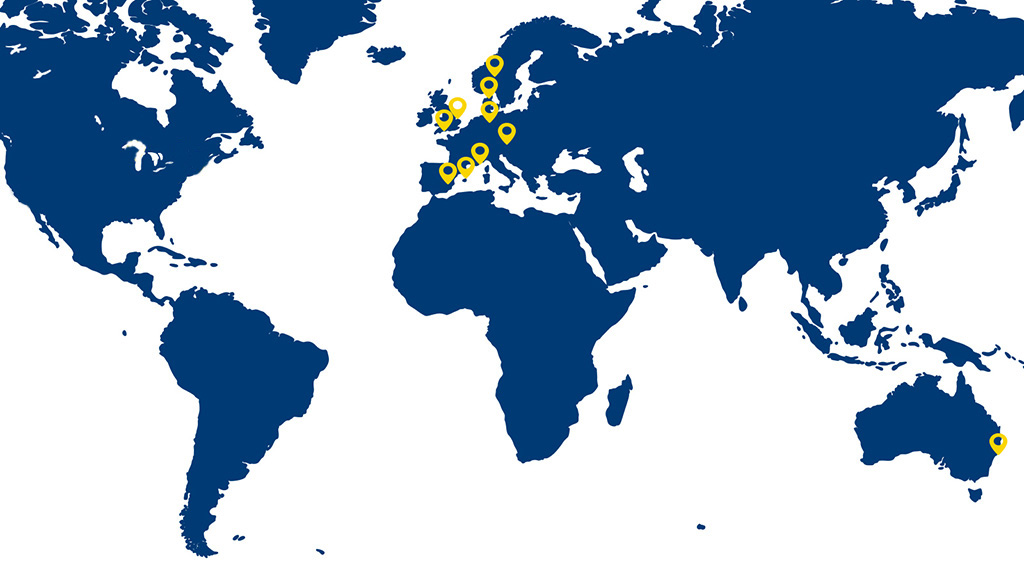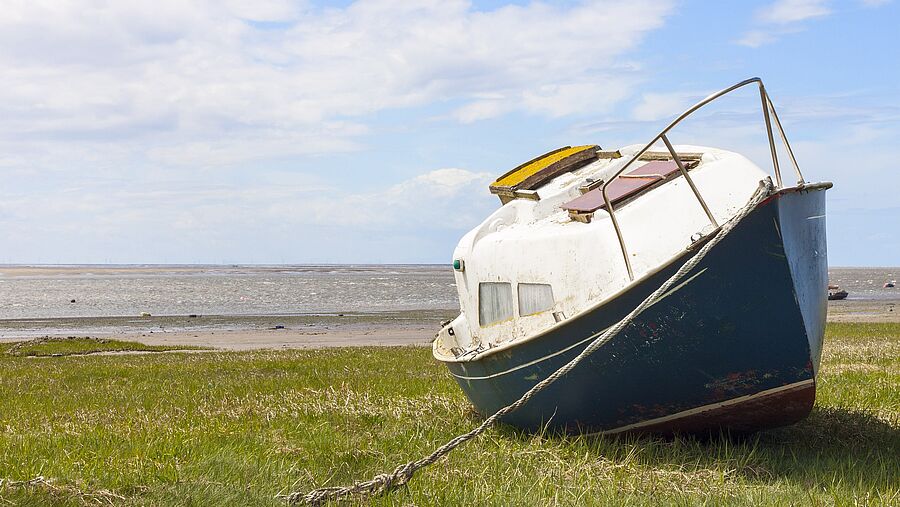
* Pantaenius UK Limited is authorised and regulated by the Financial Conduct Authority (Authorised No.308688)
In the vast expanse of UK waterways, a silent issue is on the rise - the fate of boats reaching the end of their useful lives. As a leading marine insurance provider, Pantaenius has observed the environmental challenges posed by the disposal of boats, particularly those constructed from fibre-reinforced plastic (FRP), commonly known as fibreglass or GRP. Sadly the impact of abandoned boats weighs heavily on the marine environment, along with the difficulties of disposal, and sustainable solutions need to be found.

Abandoned boats, often in states of disrepair, have become all too familiar on both land and water. Despite being anecdotal, these eyesores are not just a visual nuisance; they pose a significant environmental threat that seems to be increasing. Most small leisure craft, especially those built from the 1970’s onward, are crafted from FRP which is durable and typically lasts 30–50 years in active use. The sheer number of boats, owned by UK households alone (estimated at over 1 million), raises concerns about the ecological impact when they reach the end of their lifespan.
Unlike wood and steel hulls, FRP doesn't easily decompose, presenting a unique set of challenges for end-of-life disposal. Results from the University of Brighton research on marine microplastics has highlighted that FRP boats left in the water release microscopic fibres that enter the ecosystem, potentially finding their way into the human food chain. Additionally, the leakage of fuel, oil and chemicals from anti-fouling paint further compounds the environmental damage.
Dr Corina Ciocan, Senior Lecturer in Marine Biology in the University of Brighton's School of Applied Sciences, stated:
As these vessels now reach their end-of-life as seagoing craft, they are creating an emerging crisis as the boats decay and release toxic microfibres into the aquatic environments that are then being taken up by various kinds of marine life. The abandonment of these vessels also interferes with maritime traffic and fishing activities, as well as littering and damaging the seabed.
Disposal of end-of-life boats clearly presents a financial challenge for owners. The RYA often faces the question of how to discard boats for free, which is near impossible. In reality, disposal costs are high, especially for the low-value hull materials. Proper dismantling and handling can cost anywhere from a few hundred pounds for a dinghy to tens of thousands for a larger yacht. Transportation alone can double the overall cost, making it a rather daunting prospect for boat owners.
The international nature of the boating industry calls for coordinated efforts to address the environmental impact of boat disposal. Initiatives are evolving that are aligned with changes and signify the marine industry's commitment to sustainability where France stands out. They have a system that requires manufacturers to contribute to recycling and proper disposal costs at the point of sale, offering a potential model for other nations. The UK government is exploring solutions, with the RYA advocating for a similar system. This certainly offers a potential model for other nations. The European Boating Industry's roadmap, sets ambitious targets to phase out landfill dumping and burning of FRP by 2030 and there is also a push to expand the use of FRP in cement kilns from 2025 to incorporate within concrete production for road and building use.
Recycling FRP for use in new boats emerged as a potential solution with The Blue Composites Project, led by Blue Parameters marine consultancy, launched at the 2022 Green Tech Boat Show. Focused on recycling composite materials, the aim is to extract resins and fibres from FRP, creating a value for the material at the end of its life. Regulatory support for the use of recycled content is crucial to making this a reality.
As boats continue to reach their end of life, the issue of abandoned vessels unfortunately grows. The RYA, in collaboration with The Green Blue, is actively collecting data on the many deserted boats strewn across the country. Every reported boat becomes a valuable data point, helping build a better understanding of the scale of the problem and supporting initiatives for a more sustainable future.
Next time you spot an abandoned boat, report it to the RYA via The Green Blue. Your contribution will play a vital role in preserving our marine environment and steering the boating industry toward a more sustainable and responsible future.
For further in-depth reading, this recent paper from the International Maritime Organisation gives some great insight into their research for alternatives to at sea disposal.